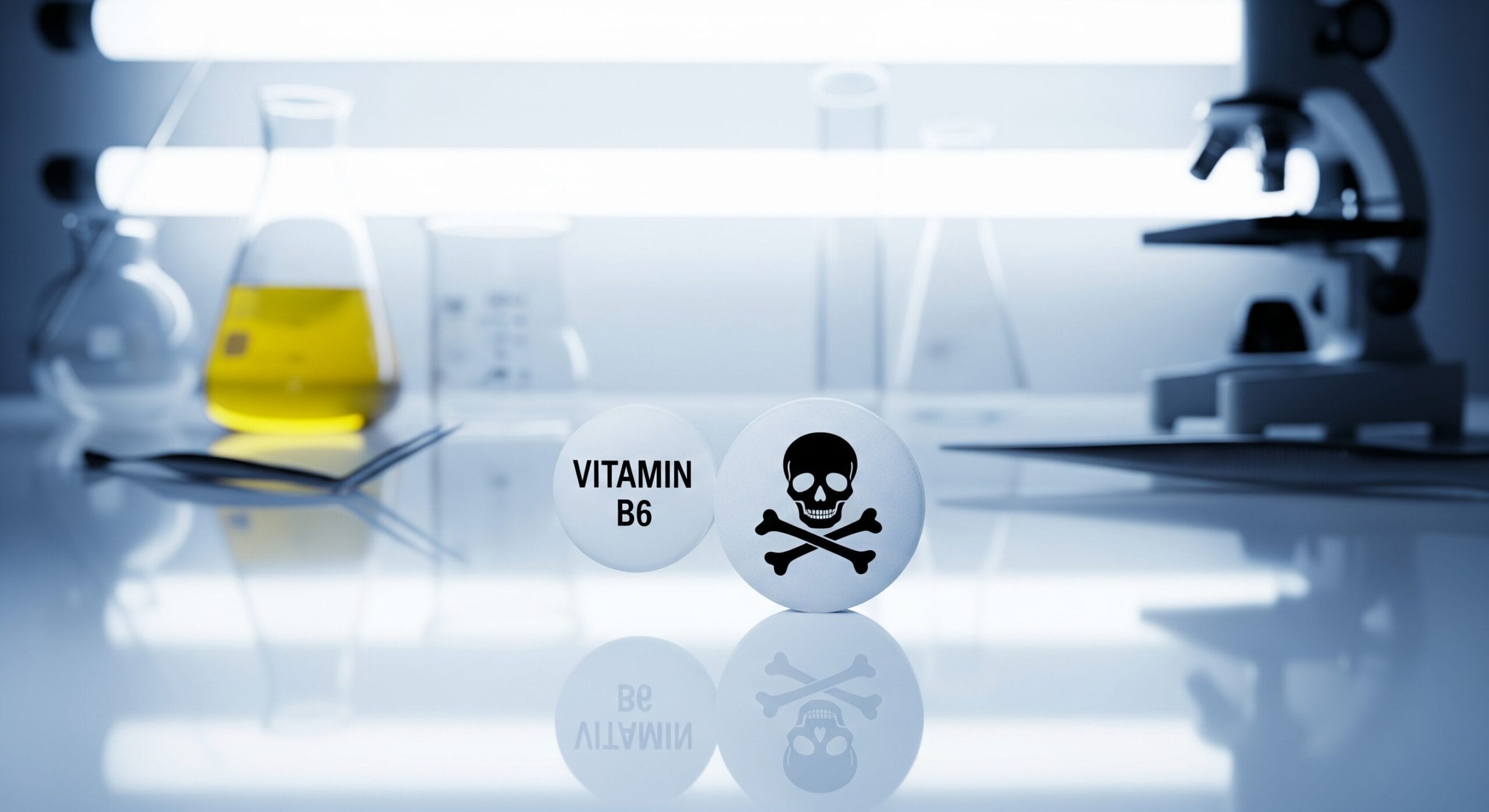Are You Suffering From B12 Deficiency?
I believe one of the most overlooked deficiencies in Australia, and probably worldwide, is B12 deficiency.
[thrive_link color=’purple’ link=’https://forms.gle/wdS2uNAxDaisBDw67′ target=’_blank’ size=’medium’ align=”]TAKE THE B12 QUIZ[/thrive_link]
Our reference ranges are too low and so people don’t really notice when they’re B12 deficient.
Just this morning I saw a beautiful couple for fertility issues. Their B12 was so low, it was below 100umol/L. They had energy issues, mood disturbances, fertility issues, and a general feeling of being unwell. I told them they had to go and get a B12 shot which they did every week for 6 weeks.
They came back and said they both felt like changed people. Even though their doctor said they didn’t need it, they benefited from it significantly. Their mood improved, vitality is back, they had a boost of energy, and they get up from bed feeling good. They explained how great they felt to their doctor and she was so amazed by their story she started having B12 shots as well and told them she felt so much better.
So why are doctors and medical professionals reluctant to give B12 shots? Personally, I think our reference ranges are not up to date or ideal. The Japanese say 500umol/L is their ideal range, with 400umol/L being the lowest they want to see and yet we Australians are saying 150umol/L is ok. So who’s right? More importantly, who’s healthier?
Well I believe you can tell me that. If you had a B12 shot or took B12 and felt significantly better, then you definitely needed it. Your B12 absorption relies almost solely on your gut and stomach acid breaking down the protein to get the B12 from the meat (no, vegetables will not do). Then you need to have intrinsic factors on the gut lining to bring B12 into circulation, transcobalamin proteins to move it around the body and finally, pancreatic enzymes for absorption.
How many of us have a healthy gut function? Very few!!! The gut microbiome project has highlighted that. With all our radical diets, we are disturbing the microflora in our gut and is affecting its core functions.
B12 is the most important nutrient for you to absorb your folate. If you don’t have enough B12, you can’t metabolise your methylfolate. The methionine cycle slows down and you are more likely to react to methyl’s. So you have to have it at decent levels. I see hundreds and hundreds of patients each year and I can tell you without a doubt B12 deficiency is a major issue.
So if you have any of the below symptoms, you most likely need B12. There is no real evidence to suggest that there are toxicity levels with B12. Let your body be the judge. If you feel better taking B12 then continue taking it. You can start at a higher dose (say 2,000mcg) then reduce to half once you feel better.
Below is a list of the signs and symptoms of B12 deficiency. Many are currently suffering from sub-clinical B12 deficiencies due to the widespread and misleading reference ranges of pathology testing. Therefore, many may be experiencing common symptoms of low B12 when they have been told their B12 levels are within the healthy range.
Common B12 Deficiency Signs and Symptoms (that occur with sub-clinical deficiencies):
- Numbness
- Tingling, pins and needles
- Weakness, dizziness
- High homocysteine, low methionine
- Megaloblastic macrocytic anaemia
- Mild or moderate leukopenia (low white blood cells)
- Mild or moderate thrombocytopenia (low platelets)
- Enlarged red blood cells (macrocytosis)
- Abnormal white cell (neutrophils)
- Chronic fatigue or tiredness
- Overall weakness or lethargy
General Signs and Symptoms:
- Ataxia, (unsteady walking)
- Paresthesia (prickling sensation) and weakness in peripheral nerves
- Confusion
- Infertility
- Vision loss
- Leg pains
- Shortness of breath
- Loss of appetite/weight loss
- Epigastric pain
- Osteoporosis
- Increased susceptibility to infection
- Failure to thrive in infants
- Vitiligo
- Premature greying of hair
- Burning feet
Mental Changes
- Depression (including postpartum depression)
- Irritability
- Apathy
- Psychosis
- Sleepiness
- Suspiciousness (paranoia)
- Personality changes
- Memory loss
- Dementia, intellectual deterioration
- Hallucinations
- Violent behaviour
- In children, developmental delay and/or autistic behaviour
Neurological signs and symptoms
- Abnormal sensations ie: pain, tingling, numbness of legs, arms, trunk
- Diminished sense of touch, pain and/or temperature
- Loss of position sense (awareness of body position)
- Weakness of limbs
- Clumsiness
- Tremor
- Symptoms mimicking Parkinson’s disease or MS
- Spasticity of muscles
- Incontinence (urine or stool)
- Paralysis
- Vision changes
- Damage to the optic nerve –neuritis, inflammation, atrophy
Vascular Problems
- Transient ischemic attacks (TIAs)
- Cerebral vascular accident
- Coronary artery disease
- Myocardial infarction
- Congestive heart failure
- Palpitations
- Orthostatic hypotension
- Deep vein thrombosis
- Pulmonary embolism
Pathology testing options for B12:
- Serum B12 (not that reliable)
- Methylmalonic acid (MMA)
- Homocysteine
- Holotranscobalamin (holoTC)
- If a severe deficiency is present:
- Serum B12 is low
- MMA is elevated
- Homocysteine is elevated
As B12 is imperative to a healthy methylation cycle, regularly testing your B12 levels and ensuring you are consuming B12 rich foods are fantastic ways to maintain optimal levels.
For those who struggle to reach an ideal B12 level via diet alone, you need to supplement. Those of you who are vegetarians or vegans MUST supplement. So which one do you use?
The active B12’s in the body are adenosylcobalamin (mitochondrial B12) and methylcobalamin (neurological B12). The precursor to both of these is hydroxocobalamin. Those who have low blood pressure are much better suited to hydroxocobalamin because the body will then decide which B12 it needs to produce. The only problem lies with those who have genetic mutations that stop the metabolism or absorption of B12.
My tips for those who know their mutations are:
- MTR/MTRR– ideally methylcobalamin
- MMAB/MUT– adenosylcobalamin
- Low blood pressure– hydroxocobalamin
- Cannot tolerate methyl’s– hydroxocobalamin
- Chronic fatigue– hydroxocobalamin in Australia. Elsewhere, either a combination of adenosyl/methyl or hydroxococbalamin.
- TCN2 mutations– These people need injections/shots as transportation into the cell is compromised. See more on our genetics next week.
We have a whole line of B12 products in the shop:
Hydroxy B12 Drops
Methyl B12 Drops
Methyl B12 Powder
Hydroxy B12 Powder
Methyl B12 Cream
Hydroxy B12 Cream








